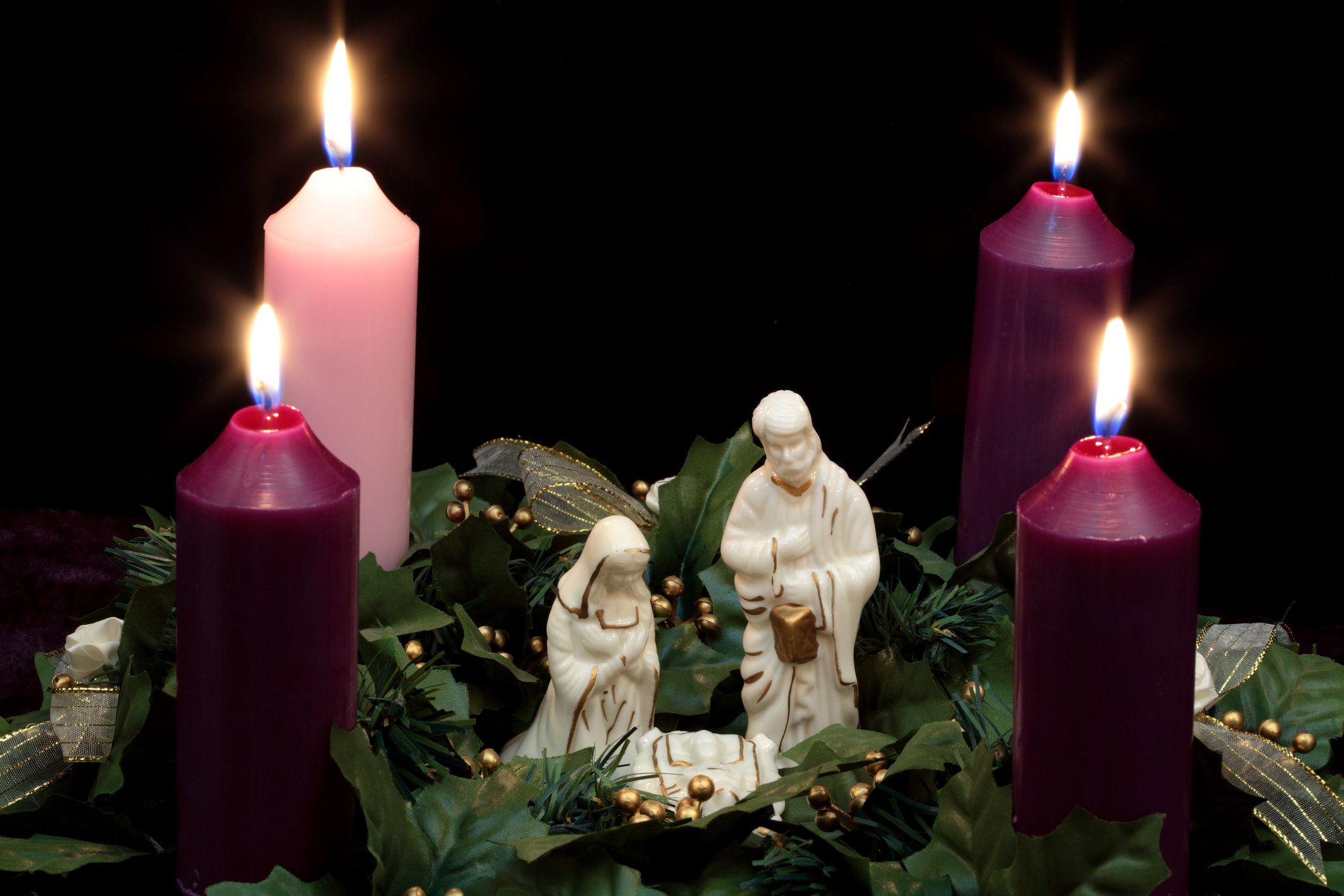Advent prepares us for spirituality of Christmas

The three main colours of the candles lit for the season are purple, pink, and white. PHOTO | RACHEL MABALA
What you need to know:
- Did you know? In Christianity, Advent begins on the fourth Sunday before Christmas Day, or the Sunday which falls closest to November 30, and lasts through Christmas Eve, or December 24. When Christmas Eve falls on a Sunday, it is the last or fourth Sunday of Advent. Thus, the actual season of Advent can last anywhere from 22-28 days.
It has been observed that the Christmas feast has become more secular than spiritual. People of all backgrounds look forward to Christmas in terms of commercialism and merrymaking. The most conspicuous factor seems to be lack of adequate spiritual preparation for it. Traditionally, such preparation has been provided for by the season of Advent.
Understanding the advent
The word “advent,” from the Latin adventus, means “coming” or “arrival.” The Advent Season is focused on anticipating the arrival of Jesus as Messiah (Christ or King). Old Testament passages related to the expected Messiah, and New Testament passages concerning Jesus’ second coming as judge of all, are followed. By sharing in the long preparation for the Saviour’s first coming, Christians are enabled to renew their ardent desire for his second coming.
There is another coming, however, which links the other two; and that is Christ’s coming among us through the Word of God, the sacraments and in every human being, especially the needy.
These prolong Christ’s incarnation, making available to us the benefits of that saving event and giving us the strength we need to look forward to His final appearance with joy and confidence, rather than with fear and trembling.
Reforms
During the Reformation, however, some Protestants de-emphasised many Christian holy days and seasons. Because of its connections to the Roman culture, the reformists regarded Christmas more as a pagan than a Christian feast.
As result, they fell short of celebrating the true meaning of Advent, treating it as mere early extension of Christmas. This accounts for Christmas carols during Advent. Fortunately, as a reaction to the excesses of secular Christmas values, celebrating Advent is gaining the original meaning, accorded to it by Catholic and Orthodox churches.
Similar to the Lenten season, the Advent season bears the messages of hope, reconciliation and forgiveness. “Through the incarnation, passion, death and resurrection of Jesus Christ, God’s mercy flowed into the world, the breach of original sin was mended, and fellowship between God and man was restored.” Comments Johnnette S. Benkovic (Revert from secularism- 2000).
Time for reflection
Advent is the perfect time to accept God’s grace of reconciliation that comes to us through Jesus Christ and then extend it to others, by offering them forgiveness. It is about letting go of past injuries, renouncing old judgments, giving up grudges. It is about renewing relationships, healing hurts, and making peace. It is about hope and new beginnings, restoration and renewal.
Forgiveness is medicinal to human life and relationships. Our physical, emotional, and mental health depends on it. Repressed anger causes high blood pressure, ulcers, heart problems, loss of memory, stomach disorders, increased susceptibility to infection, and clinical depression.
Resentment breaks up marriages, loses jobs, and splits up friendships. Bitterness creates poor self-image, poor interpersonal relationships, and poor job performance. All in all, lack of forgiveness separates, isolates, and devastates.
A lack of forgiveness affects our spiritual health as well. “For if you forgive men their trespasses, your heavenly Father also will forgive you; but if you do not forgive men their trespasses, neither will your Father forgive your trespasses”, says Jesus in Mathew 6:14.
Forgiveness is a free-will action, prompted by the grace of God, which sets us free from the consequences of sin.
Failing to forgive is choosing to hold on to evil rather than letting God’s grace work within us. Life becomes a living hell. Forgiveness acknowledges the fact that the one who injured us deserves our compassion. “Be compassionate as your heavenly Father is compassionate” (Luke 6:36).
Advent, a season of hope, especially at a time when people are worried by the Covid-19 pandemic. “In the midst of life’s storms, God always extends His hand to us and frees us from threats,” says Pope Francis.
Advent symbols
The Advent Wreath is an important symbol of Advent of the season. It usually sits on the dinner table and is a constant reminder of the holy season. The wreath is of German origin and consists of an evergreen wreath, and four Advent candles. Three candles are purple and one is pink.
The lighting tradition- On the fourth Sunday before Christmas (the first Sunday of Advent), the first Advent candle is lit at dinner and a short prayer is said.
The first candle is lit each night along with a short prayer. On the second Sunday of Advent, a second purple candle is lit.
On the third Sunday the pink candle is lit. Finally on the fourth Sunday of Advent, just a few days before the birth of Christ, the final purple candle is lit.
The four candles, three purple and one pink. They represent the four weeks of preparation.





